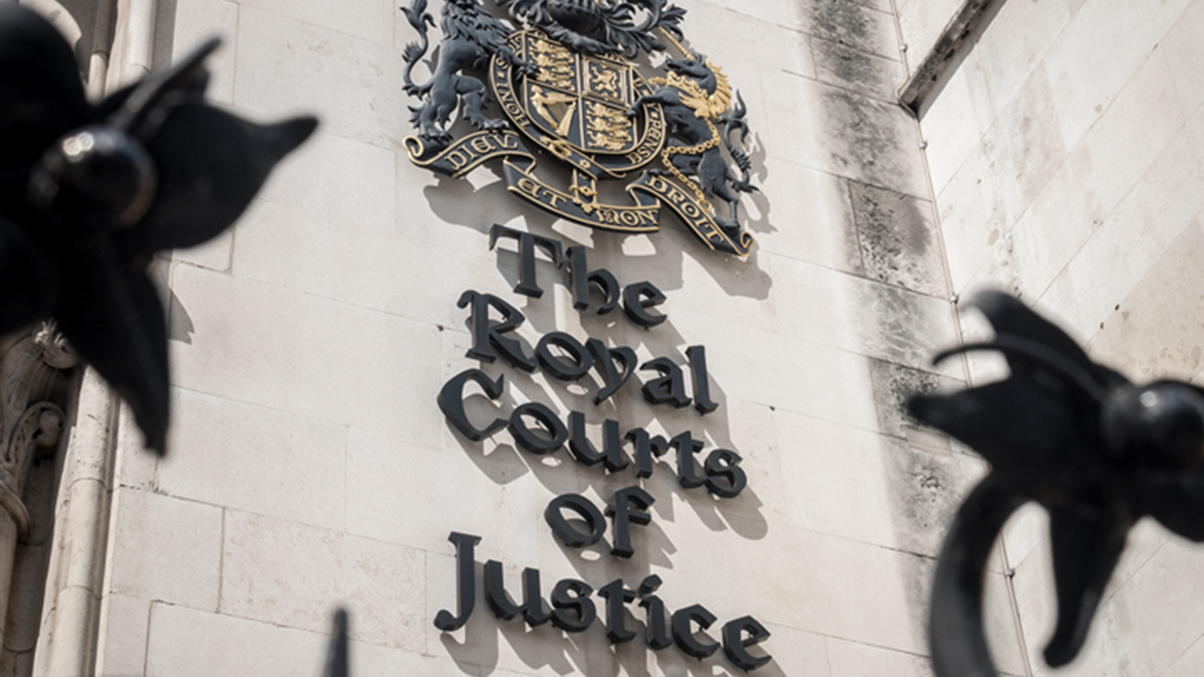In this article, Angela Milner (Senior Associate, Knowledge Development Lawyer) looks back at predictions made in April regarding the impact of Covid-19 on civil litigation. Angela assesses which of those predictions have materialised and discusses what we can expect to see in a post-Covid era.
A. What we thought would happen
In April we published an article discussing the likely impact the Coronavirus pandemic (and the restrictions imposed to deal with it) would have on civil litigation. We speculated that there would, among other things, be an uptick in applications for extensions of time and adjournments, but that the courts would most likely press on with delivering justice where possible. We discussed the likely increase in alternative dispute resolution (“ADR”), telephone hearings and fully remote trials.
B. What has actually happened? And what guidance has the court given?
The last seven months have confirmed the accuracy of these predictions.
1.Remote hearings/trials
Cases such as the National Bank of Kazakstan & Another v The Bank of New York Mellon & Ors (in which Stewarts acted for the claimants) illustrate the willingness of the court to conduct trials entirely virtually (even in circumstances where some of the parties object). You can read more about Stewarts’ experience of acting in the first fully remote trial in the Commercial Court here. To listen to a podcast from the Stewarts lawyers involved in the case, please click here.
Detailed guidance was given on the issue of remote hearings in the case of Municipo de Mariana & Others v BHP Group PL [2020] EWHC 928 (TCC), where the court noted the following:
- regard must be had to the importance of the continued administration of justice. Justice delayed is justice denied even when the delay results from a response to the currently prevailing circumstances;
- many disputes can be resolved fairly by way of remote hearing and courts must be prepared to adopt this format in circumstances where such a move would have been inconceivable only a short time ago;
- there should be a rigorous examination of the possibility of a remote hearing and of the ways in which such a hearing could be achieved; and
- inevitably, the question of whether there can be a fair resolution by way of a remote hearing will be case-specific. A multiplicity of factors will come into play and the issue of whether, and if so to what extent, live evidence and cross-examination will be necessary is likely to be important in many cases.
There will, on occasion, be cases where the court cannot be satisfied that a fair resolution can be achieved by way of a remote hearing. However, the implication in the case – and the approach taken by the court to date – suggests that this will be relatively rare.
2. Extensions of time
With regards to extensions of time, case law since April has made it clear that, as predicted, the court’s preference has been to press ahead with original deadlines if at all possible. In Heineken Supply Chain BV v Anheuser-Busch Inbev SA [2020] EWHC 892 (Pat), the court rejected the claimant’s request for a significant time extension for the filing of reply evidence, together with its request to push back the trial date until the following month. This was despite the fact that a senior member of the claimant’s legal team had fallen ill with Covid-19 and been unable to work on the reply evidence in question. In weighing up how to proceed, the court referred to recent cases that have proceeded remotely (and on time), as well as to guidance from the court.
It noted that Practice Direction 51ZA (which deals with the extension of time limits) requires the court to “take into account the impact of the Covid-19 pandemic when considering applications for extensions of time” (para 13). It also noted, however, that this should be approached against the background of “ensuring that attempts are made to keep to the directions timetable where it is realistically possible to do so”(para 13). Although the court granted a small extension for the filing of reply evidence, this extension was “modest” (para 23). The original trial window was also maintained. The court made it clear that “the wheels of justice should keep turning at their pre-crisis rate” (para 28), noting that lawyers may need to “push a little harder” (para 28) to ensure that cases remain on track.
This sentiment has been echoed in subsequent case law. In Municipo de Mariana & Others v BHP Group PL [2020] EWHC 928 (TCC), the court made it clear that requests for extension of time should be considered against the following principles:
- the aim should be to keep existing deadlines. Where that is not realistically possible, the minimum extension of time should be granted;
- the court can expect legal professionals to make appropriate use of modern technology;
- while recognising the real difficulties caused by the pandemic (and by the restrictions imposed to meet it), the court can expect legal professionals to seek to rise to that challenge. Lawyers can be expected to go “the extra mile” (para 32) and to go further than they otherwise might have done;
- the approach that is required of lawyers can also be expected from expert professional witnesses;
- the court should be willing to accept evidence and other material that is rather less polished and focused than would otherwise be required, if that is necessary to achieve the timely production of the material;
- however, the court must also take into account the realities of the situation. Care must be taken to avoid requiring compliance with deadlines which are not achievable even with the proper effort;
- the court must be conscious that it is likely to take longer and require more work to achieve a particular result (such as the production of evidence) by remote working than would be possible by more traditional methods;
- courts should bear in mind that hearings are being conducted from a number of different locations with varying amounts of space and quality of internet connection, that any IT support is being provided remotely, that individuals may be caring for sick family members/children, or assisting vulnerable relatives; and
- an extension of time which requires the loss of a trial date has much more significance (and will be granted much less readily) than an extension of time which does not have that effect. Before vacating a trial date, the court must be confident that there is no alternative that is compatible with dealing fairly with the case.
Conclusion on remote hearings and extensions of time
The courts, parties and lawyers are being expected to adapt at high speed to the challenges posed by the pandemic and the restrictions in place because of it. Given the protracted nature of the pandemic, it is clear that many more hearings and trials will take place remotely over the coming months. It is equally clear that the court will be slow to grant extensions of time purely as a result of the pandemic and/or remote format. The expiry of Practice Direction 51ZA (which allowed parties to agree extensions of time of 56 days without permission from the court) on 30 October 2020 underscores this point further.
When faced with a choice between (i) seeing justice done by utilising technology and holding virtual hearings or trials, versus (ii) delaying justice altogether, the court will do everything in its power to opt for the former.
3. ADR
The predictions we made in relation to ADR have also materialised. According to the Commercial Court Users Group, in the year to date “settlements have been high. Normally there is a 60-65% settlement rate. In the year to date it is closer to 75%.” [Minutes of the Commercial Court Users Group dated 15 June 2020, paragraph 3]
Interestingly, the increased desire to settle disputes appears to have started in January 2020, before the Covid-19 restrictions came into force in the UK. No doubt this reflects the international nature of many businesses, who have been impacted by Covid-19 related uncertainty globally. [Minutes of the Commercial Court Users Group dated 15 June 2020, paragraph 3]
C. What next?
The last seven months have involved a period of extremely rapid change for the legal profession. It is difficult to think of another point in history when courts – and lawyers – have been expected to adapt at such a fast pace. One interesting question on the minds of many in the profession is what will happen in the longer term, i.e. when the pandemic ceases to be of relevance to the justice system. What, if anything, of the status quo will be preserved? Will we revert to conducting all hearings and trials in person?
It seems unlikely. As Sir Geoffrey Vos, the Chancellor of the High Court, said in a recent speech to the Chancery Bar Association, there are some who believe that remote hearings and trials are a “form of second-class justice”. At the other end of the spectrum, others extol the virtues of remote hearings without even the most cursory consideration of the potential disadvantages. However, it seems reasonably clear that most in the legal profession lie somewhere in-between. That is, they can see the merits of retaining remote hearings in some form, but are not yet sure what the optimum balance would look like.
Many have reported concerns about Case Management Conferences (“CMCs”) proceeding remotely. They believe that holding these remotely impedes the ability of the parties and the judge to have free-flowing discussions, thereby resulting in less effective case management.
In contrast, there appears to be widespread consensus that substantial interlocutory applications work very well remotely, in large part because these tend to be highly structured in nature (i.e. a party makes an application, the other responds and there is a right of reply). They do not generally require free-flowing discussion in the same way as CMCs. It may be that in a post-Covid era the default position is that such hearings take place remotely unless there are “compelling reasons” for them to take place face-to-face (a view endorsed by Sir Geoffrey Vos). [Comments in speech made by Sir Geoffrey Vos entitled “The new normal in the Business and Property Courts post Covid-19” for the Chancery Bar Association on 3 June 2020, paragraph 37.]
The position as regards remote trials is perhaps more challenging. Many recognise the considerable benefits of remote trials (including reduced travel expenses and more client participants being able to attend trial than would have been possible had they been required to attend court physically). However, concerns remain about the ease with which judges can read witnesses and take a view on the veracity of their evidence (particularly where there are pre-existing concerns about the honesty of the witness). Further, many barristers have expressed reservations about the different advocacy skills required in a remote cross-examination.
Interestingly, a discussion with lawyers attending the 125th Anniversary of the Commercial Court seminar in September this year revealed that the single biggest reservation of many in the profession regarding a move to fully remote trials is the perception that this would have a detrimental impact on junior members of the legal profession. Many judges, counsel and solicitors regard the ability to sit in a physical courtroom and experience first-hand the evidence of the witness, the art of cross-examination and the trial as invaluable learning opportunities for juniors. Many useful lessons take place during discussions to and from court, or when speaking with clients during court breaks.
However, it seems unlikely that these reservations alone would be sufficient to deter the use of remote trials after we have emerged from the pandemic.
It may be that what we see in the future is a more nuanced approach, with some stages of trial (or more minor witnesses) being heard remotely, while other aspects of trial/key witnesses being heard in person. Exactly what the new normal will entail, and what will be preserved from this tumultuous time, remains to be seen. However, it is difficult to disagree with Sir Geoffrey Vos, who notes that “the new normal, to which we should aspire, must provide a far more flexible dispute resolution process than has historically been the case. [Comments in speech entitled “The new normal in the Business and Property Courts post Covid-19” for the Chancery Bar Association on 3 June 2020, paragraph 25.]
Covid-19 is impacting individuals and companies around the world in an unprecedented way. We have collected insights here to help you navigate the key legal issues you may be facing at this time.
You can find further information regarding our expertise, experience and team on our Commercial Litigation pages.
If you require assistance from our team, please contact us or alternatively request a call back from one of our lawyers by submitting this form.
Subscribe – In order to receive our news straight to your inbox, subscribe here. Our newsletters are sent no more than once a month.






